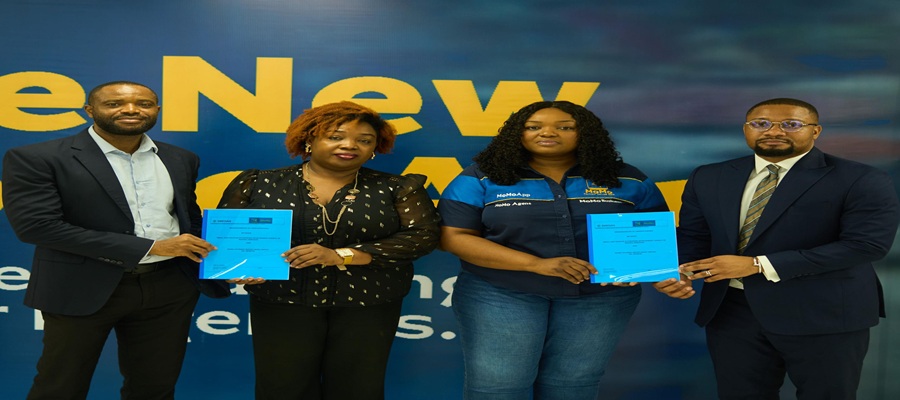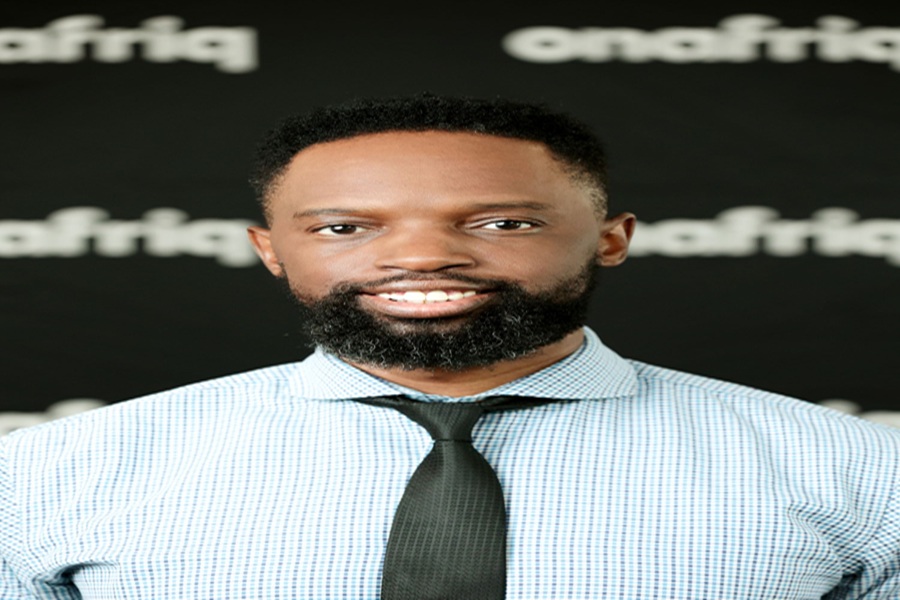Telecom
40%Smartphone Users Eye Mind-Sharing Wearables by 2020- Ericsson

Consumers are becoming more comfortable with ideas that once seemed beyond comprehension like having robots in the home and mind-sharing.
In the latest Ericsson ConsumerLab annual report, 40% smartphone users said they would like to use a wearable device to communicate with others directly through thought and believe this will be mainstream by 2020.
This shows that new ways to communicate will continue to appear, offering users even more ways to keep in touch with friends and family.
In the report titled ‘Ericsson’s 10 Hot Consumer Trends for 2015’, the researchers found that consumers actually want technology and connectivity to be integrated into all facets of daily life.
Undoubtedly, the Ericsson ConsumerLab annual report entail good omen for apps developers to leverage on, especially as the global research program and statistically represent the views of 85 million frequent internet users.
Michael Björn, head of Research, Ericsson ConsumerLab, said that, “Services and products that quite recently seemed beyond imagination are now easily accepted and believed to rapidly reach the mass market. With only five years until 2020, the future really does seem closer than ever before.”
The insights in the report “10 hot consumer trends for 2015 and beyond” mainly come from Ericsson ConsumerLab’s.
In a teleconference with IT journalists based in Lagos, Nigeria, Rebecka Cedering Angstrom, senior advisor, Consumer Insights, Ericsson ConsumerLab, gave details of the report which shows, for instance, media use patterns are globalizing.
Under the first trend: The streamed future, Angstrom said they found that 2015 will be historic as more people will watch streamed video on a weekly basis than broadcast TV.
2. Helpful homes. Consumers show high interest in having home sensors that alert them to water and electricity issues, or when family members come and go.
3. Mind sharing. Smartphone owners would like to use a wearable device to communicate with others directly through thought – and believe this will be mainstream by 2020.
4. Smart citizens. Consumers believe traffic volume maps, energy use comparison apps and real-time water quality checkers will be mainstream by 2020.
5. The sharing economy. Smartphone owners are open to renting out their spare rooms, household appliances and leisure equipment as it is convenient and can save money.
6. The digital purse. 80 percent of smartphone owners believe the smartphone will replace their entire purse by 2020.
7. My information. 56 percent of smartphone owners would like all internet communication to be encrypted.
8. Longer life. Smartphone owners see cloud-based services of various kinds giving them the potential to live healthier and longer lives.
9. Domestic robots. Consumers are welcoming the idea of having domestic robots that could help with everyday chores and believe this will be common in households by 2020.
10. Children connect everything. 46 percent of smartphone owners say that children will expect all objects to be connected when they are older.
Ericsson ConsumerLab has close to 20 years’ experience of studying people’s behaviors and values, including the way they act and think about ICT products and services. Ericsson ConsumerLab provides unique insights on market and consumer trends.
Ericsson ConsumerLab gains its knowledge through a global consumer research program based on interviews with 100,000 individuals each year, in more than 40 countries and 15 megacities – statistically representing the views of 1.1 billion people.
Both quantitative and qualitative methods are used, and hundreds of hours are spent with consumers from different cultures.
Ericsson is the driving force behind the Networked Society – a world leader in communications technology and services.
Its long-term relationships with every major telecom operator in the world allow people, businesses and societies to fulfill their potential and create a more sustainable future.
Ericsson’s services, software and infrastructure – especially in mobility, broadband and the cloud – are enabling the telecom industry and other sectors to do better business, increase efficiency, improve the user experience and capture new opportunities.
With more than 110,000 professionals and customers in 180 countries, we combine global scale with technology and services leadership.
It supports networks that connect more than 2.5 billion subscribers. Forty percent of the world’s mobile traffic is carried over Ericsson networks.
Telecom
MoMo PSB, SMEDAN Forge Pact to Digitise Nigeria’s SMEs

MoMo PSB, MTN Nigeria’s fintech powerhouse, sealed a game-changing pact with the Small and Medium Enterprises Development Agency of Nigeria (SMEDAN) on February 3 at its Victoria Island headquarters, unleashing digital and financial tools to turbocharge SMEs nationwide for seamless operations, revenue surges, and sustainable scaling.

MoMo PSB, SMEDAN
The partnership arms SMEDAN-registered merchants with MoMo’s multi-channel arsenal—apps, POS, USSD, partner portals, and custom platforms—to hoover payments across streams, automate payrolls, juggle tills and shop chains, and boss core business metrics from one slick dashboard.
This powerhouse duo targets Nigeria’s SME engine room, where digital chokepoints throttle growth, injecting MTN’s MoMo muscle to slash friction and unlock efficiencies for mama-put hustles to mid-tier factories alike.
Industry watchers hail the MoU as a masterstroke in President Tinubu’s economic revival playbook, fusing government SME scaffolding with private-sector fintech firepower to birth a new breed of digitally dominant entrepreneurs primed for AfCFTA conquests.
Telecom
MTN Ignites Teacher Revolution: 5,000 Digitally Armed for Phase Two

MTN Foundation and SAIL Innovation Lab have roared into Phase Two of their blockbuster Teachers Fellowship Programme, onboarding 5,000 elite educators from Nigeria’s 36 states and the FCT since January 13 to turbocharge public schools with cutting-edge digital wizardry and global teaching firepower.

MTN
This mobile-first crusade, laser-focused on arming primary and secondary school titans for the digital economy showdown, kicks off with a grueling four-week virtual bootcamp via WhatsApp and Google Classroom—slashing travel barriers for even the remotest rural warriors.
Organisers promise peer-to-peer fireworks and real-time gut-checks, capping Stage One with a virtual gala saluting milestones before culling the pack to a fierce “Top 500” via engagement, assessments, and hustle for Phase Two’s inquiry-based mastery and deep-dive digital metamorphosis.
MTN Foundation’s Executive Director Odunayo Sanya lit the fuse: “Teachers are the backbone of our education system. By empowering them with digital competencies and innovative teaching methods, we are directly investing in the future of our youth.
This Fellowship Programme is designed to ensure that our educators are not just keeping pace with global best practices but are actively shaping the next generation of innovators and leaders.”
Nigeria’s heftiest private teacher uprising scales from last year’s triumphs, minting classroom commandos as state ambassadors to ignite inquiry-driven, tech-fueled learning revolutions coast-to-coast.
Telecom
Onafriq, PAPSS Launch Wallet-Based Payments Pilot from Nigeria to Ghana

Onafriq Nigeria Payments Ltd, a CBN licenced payment service provider, partners with The Pan-African Payment and Settlement System (PAPSS) to pilot the continent’s first wallet-based outbound payments from Nigeria to Ghana – fully in Naira and instant, without relying on hard currency conversion, in partnership with Banks and Mobile Money Operators.

The pilot service, approved by the Central Bank of Nigeria (CBN), enables cross-border intra-Africa payments for individuals, merchants, and traders.
In particular, the service will benefit SMEs, the real engine of intra-African trade; all now have access to a faster, cheaper way to reach customers and suppliers across the border.
By reducing barriers to cross-border trade, the new service will allow these businesses to grow their addressable markets and activity. From the 1st of December, this service will be fully operational for a 6-month period.
Through the partnership with PAPSS, Onafriq is supporting the operationalization of the AfCFTA (Africa Continental Free Trade Area) mandate.
The mandate itself is driving tariff-free trade for the 54 member states of AfCFTA. Within the partnership itself, Onafriq provides the mobile money rails, with an ecosystem consisting of over 1 billion mobile wallets.
Meanwhile, PAPSS brings a network of over 160 commercial banks, representing an ecosystem of more than 400 million bank accounts across its 19 African countries of operation.
The two partners are essentially seamlessly connecting two worlds: mobile money and banking. As a consequence, intra-African trade transactions will take place more easily and opportunities will be created.
Currently, Africa is made up of bank and mobile-led markets, with siloes often inhibiting transactions between these economies. However, this partnership will remove these boundaries. With over one billion mobile wallets and 500 million bank wallets across Africa, this partnership will allow for cross-border collaboration at scale.
This partnership builds on Onafriq and PAPSS’ existing partnership for payments into Ghana, announced earlier this year.
Mxolisi Msutwana, Managing Director Anglophone West Africa said, “Our work with PAPSS shows what collaboration at scale can unlock—seamless, secure connections between banking systems and mobile money ecosystems.
“This is how we open bi-directional trade corridors, reduce costs for businesses, and give African enterprises the rails they need to trade with confidence in their own currencies. The vision is continental, but it starts with practical steps like this one.”
Ositadimma Ugwu, Chief Information Officer, PAPSS, added “Too often, African businesses and individuals see borders as roadblocks instead of opportunities. With this step, we’re challenging that mindset, giving Nigerians the ability to send value next door with the same ease as sending a text message.
“Our vision is simple: make Africa’s borders invisible to payments. This pilot makes that a reality, moving us closer to a continent where payments don’t pause at the border.”
This new Nigeria-to-Ghana outbound capability builds on the successful Ghana-to-Nigeria instant payments corridor launched earlier this year – further proof that Africa’s payments future is local, instant, and inclusive.

 E-Financial2 days ago
E-Financial2 days agoAccidental Billionaire Opts for Jail Instead of Returning Money Credited Him by Mistake

 News2 days ago
News2 days agoUS Set to Deport 79 Nigerians on Criminal List

 News2 days ago
News2 days agoUngoverned AI is Quietly Scaling Risk in Nigeria – Dr. Naiho

 E-Financial2 days ago
E-Financial2 days agoSEC Warns of Potential Ponzi-style Risks in AURUM BOT, ModMount

 Telecom2 days ago
Telecom2 days agoAirtel Nigeria Commits to Boosting Nigeria’s Digital Infrastructure

 E-Business1 day ago
E-Business1 day agoOADC Lagos Reinforces Commitment to Local Data Hosting and Digital Transformation @ NDPC’s National Privacy Week Summit

 Telecom2 days ago
Telecom2 days agoGoogle, African Partners Launch WAXAL to Empower 100m Africans in AI Era

 News2 days ago
News2 days agoFirst Lady Commissions Dream Centre @ OAU



























